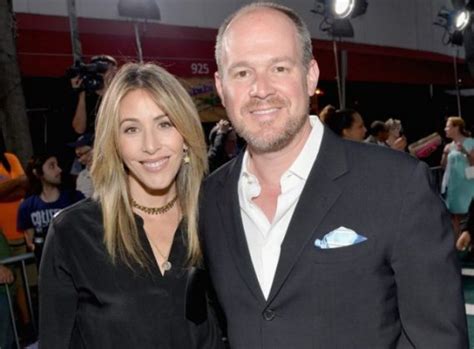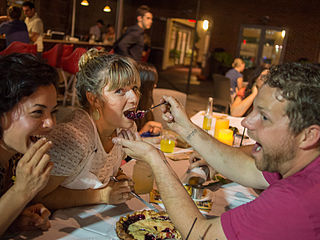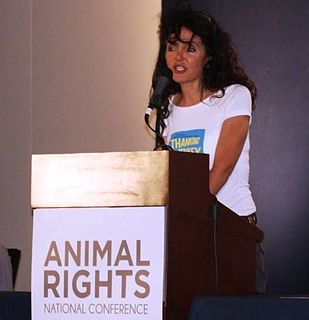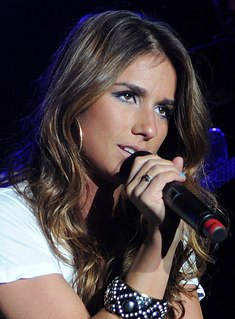A Quote by Suzy Shuster
BPA is just one chemical used to make plastic baby bottles and in the lining of food, beverage, and infant formula containers. Research shows that children are exposed to BPA by drinking from polycarbonate bottles and consuming food from containers made using BPA.
Related Quotes
When I see vegan food sold in single-use plastic containers, I get frustrated knowing that plastic is not really recycled; it is down-cycled to less and less reusable grades, and too much of it eventually ends up in the ocean - where it kills animals. Caring for animals means caring for the environment they live in, and vice versa.
The food containers come in different varieties: for example, drinks, breakfast type food, meats, vegetables. There are about 5-10 days of that type of food in each container. We try not to open a new container until we finish the one we are on - even if that means going without coffee for a couple of days.
People often ask me, "What's the difference between couplehood and babyhood?" In a word? Moisture. Everything in my life is now more moist. Between your spittle, your diapers, your spit-up and drool, you got your baby food, your wipes, your formula, your leaky bottles, sweaty baby backs, and numerous other untraceable sources-all creating an ever-present moistness in my life, which heretofore was mainly dry.
The best food storage is not in welfare grain elevators but in sealed cans and bottles in the homes of our people. What a gratifying thing it is to see cans of wheat and rice and beans under the beds or in the pantries of women who have taken welfare responsibility into their own hands. Such food may not be tasty, but it will be nourishing if it has to be used.
Bad food is made without pride, by cooks who have no pride, and no love. Bad food is made by chefs who are indifferent, or who are trying to be everything to everybody, who are trying to please everyone. Bad food is fake food, food that shows fear and lack of confidence in people's ability to discern or to make decisions about their lives.
Bad food is made without pride, by cooks who have no pride, and no love. Bad food is made by chefs who are indifferent, or who are trying to be everything to everybody, who are trying to please everyone... Bad food is fake food... food that shows fear and lack of confidence in people's ability to discern or to make decisions about their lives.































